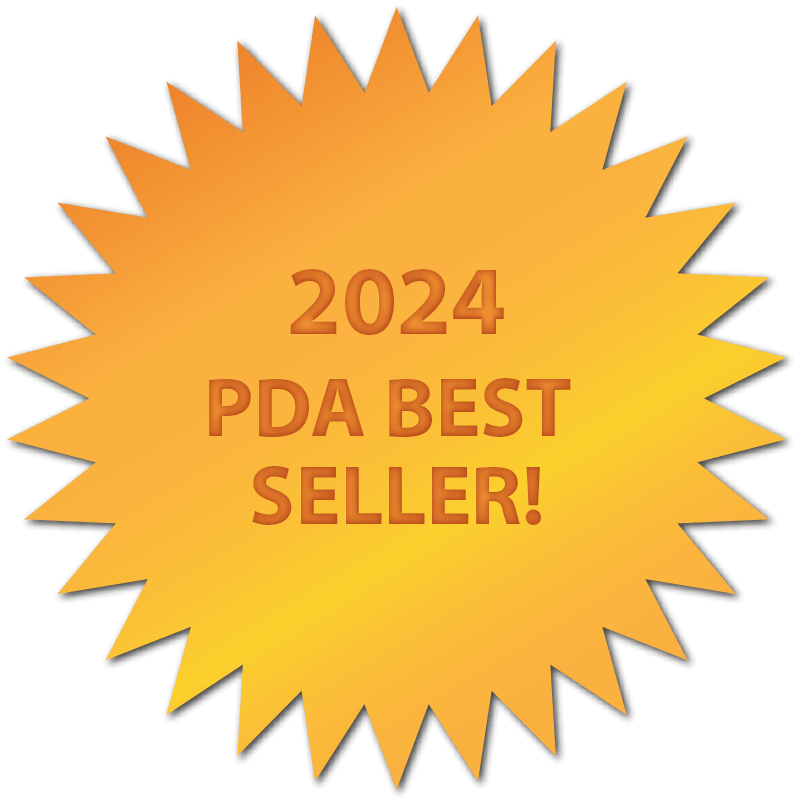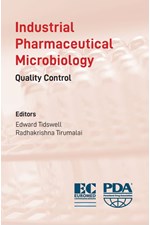Industrial Pharmaceutical Microbiology Quality Control
- Format
- PDF Single User
- Member Price
- $269.00
- Nonmember Price
- $299.00
- Government Price
- $299.00
Please sign in or become a member to purchase items from the PDA bookstore.
 Hardcopies are available for purchase at the
Euromed Communications
website .
Hardcopies are available for purchase at the
Euromed Communications
website .
An in-depth comprehensive survey of QC pharma methods in the microbiology laboratory to enable a better understanding of these methods, and to ensure better developed, more compliant, expedited procedures.
The reference text brings together the hitherto unavailable background, fundamental science, principles, development, intended purpose, and specific answers to questions of execution and qualification of compendial and related microbiological test methods. Key topics include the types of microbiological tests, reference strains and culture collections, and equivalence of reference strain.
Test methods and subject matter include bioburden, microbial enumeration, specified and objectionable microorganisms, antimicrobial effectiveness testing, endotoxins and sterility tests, microbial identification, biological indicators, water activity, disinfectant efficacy, and water. It also covers a critical, stimulating look into the topic of Environmental Monitoring. The comprehensive content provides useful guidance on the management of laboratory practices and laboratory assessments of processes and tasks. Emphasis is placed on a correct, contemporary, and standard of terminologies and definitions which is critical in the execution of these tests and a necessary common language when exploring their principles, development, execution, and troubleshooting.
In summary, Industrial Pharmaceutical Microbiology: Quality Control with its 20 chapters, 19 international authors and over 500 pages,enables the practitioner to have a complete understanding of these microbiological methods, and to ensure better developed, compliant, appropriate procedures and accurate meaningful data.
Reviews
This new book provides a wealth of information on pharmaceutical microbiology. The individual chapters are written by a majority, if not all, individuals who have served on USP committees or expert panels.
One of the unique things about this book is that it provides a strong foundation for how the various compendial tests were developed, when they became incorporated into USP, and how they have changed over time. This historical perspective has not been easy to find in the past, without going through each year’s version of USP.
Additionally, it provides the rationale for the various parameters and features of the compendial test methods. This information can be invaluable in trying to resolve difficulties in the test method and/or the conduct of investigations relative to the test method.
This book is a must have for microbiologists and quality control personnel with responsibility over the microbiology laboratories.
By: Jeanne Moldenhauer, Consultant and Author
Table of Contents
Chapter Headings
- Introduction to Pharmaceutical Microbiological Test
Methods
by Radhakrishna Tirumalai
- Terms and Definitions
by Edward Tidswell and Radhakrishna Tirumalai
- Discriminating and Enumerating Colonies
by Edward Tidswell
- General Laboratory Practices and Management
by Donald Singer
- Sterility Testing
by Edward Tidswell and Radhakrishna Tirumalai
- Microbiological Examination on Nonsterile Products –
Microbial Enumeration Tests
by Radhakrishna Tirumalai
- Microbiological Examination of Nonsterile Products –
Specified and Objectional Microorganisms
by Radhakrishna Tirumalai
- Testing forBurkholderia cepacia complex
(BCC)
by David Hussong
- Bioburden Testing
by Edward Tidswell
- Antimicrobial Effectiveness Test
by David Porter and Radhakrishna Tirumalai
- Microbial Identification
by David Roesti and Hans-Joachim Anders
- Bacterial Endotoxin Testing (BET)
by Karen McCullough
- Medical Device Testing
by Sarah Bennett
- The Role of Water Activity in Microbiological
Contamination
by Anthony Cundell
- Reference Strains, Stock Cultures and Passaging
by David Myatt
- Disinfection Qualifications
by Tim Sandle and Rachel Kirkham
- Laboratory Assessments
by Karen McCullough
- Environmental Monitoring
by Jim Akers and Karen McCullough
- Bulk Waters in Pharma/Biopharma
by Lucia Clontz
- Biological Indicators
by Kurt McCauley and Robert Bradley
About the Authors
Edward C. Tidswell is Executive Director within the Sterile and Microbiology
QA organization of Merck. In this role, he oversees microbiology issues across
sterile and non-sterile sites within the Global Manufacturing Division.
Previously, Dr. Tidswell held leadership roles supporting and innovating across
large and small volume parenteral, medical device and bulk active pharmaceutical
ingredient manufacturing and testing platforms for Baxter Healthcare, Eli Lilly
and Evans Vaccines. He is an active author and served on PDA's Scientific
Advisory Board and, since 2010, also serves on the USP expert committee on
Microbiology and Sterility Assurance.
Radhakrishna Tirumalai is recognized author, speaker, pharmacopeial expert, and microbiology expert with over 25 years experience in biopharmaceuticals and pharmaceuticals. Dr. Tirumalai is currently a Senior Principal Scientist at Merck Research Laboratories (MRL), Center for Excellence in Microbiology, providing above site support to all MRL sites on all Microbiology related issues (Sterile and Nonsterile). He also interfaces with Merck Manufacturing Division internally and external trade associations and regulatory agencies. He was at the USP, 2003-2022, in various roles and most recently as a Senior Principal Scientist-General Chapters, in the Science Division. He was the Liaison to the USP Expert Committee on Microbiology. He worked on the development and revision of General Chapters. He has authored numerous publications, review articles and several book chapters. He has organized numerous workshops and conferences and is a frequent speaker at conferences and has taught Pharmacopeial Microbiology courses at numerous locations globally.

